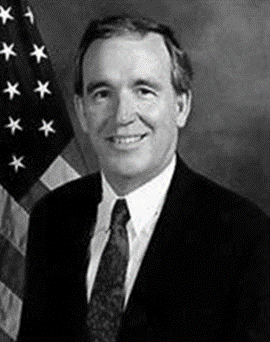In an era when facts are labeled as fiction and fiction passes for truth, it is essential that the agency responsible for documenting the actions of government officials receives the fiscal support it needs. That agency is the National Archives. Unfortunately for it and for the citizens of our country, it is being decimated by a series of budget cuts stretching back to 2010.
Described by President Hoover at its groundbreaking as a “temple of history” and home to the holy trinity of America’s founding documents - the Declaration of Independence, the Constitution and the Bill of Rights – the National Archives has suffered a reduction in its appropriated funds from $475 million in 2010 to $420 million in 2018, and is now facing a further reduction to $358 million, if President Trump gets his way. These draconian cuts must be stopped and reversed, or the people of this country will suffer the loss of the institutional memory that protects our democracy.
The National Archives is often confused with the Smithsonian Institution, a noble organization, indeed, but not with the legal importance of the National Archives. It holds millions of records documenting everything from top secret presidential and national security activities to federal tax returns, court records, and military personnel records essential to the care of our veterans. In other words, the National Archives accessions, preserves and provides access to the records that document the actions of federal officials. By doing so, it protects our rights as citizens to hold those officials accountable. With the devastating cuts it has endured and is in danger of further suffering, the agency and its dedicated employees cannot protect those rights.
Preservation staff has been reduced, research room hours and services have been cut and, most endangering to our ability to hold public officials accountable, declassification of documents with various levels of secret identifications is lagging years behind. Freedom of Information Act requests are only now being processed from 2013. And with the challenge of providing access to electronic records, increased funding for an electronic archives is critical.
For some, history was that boring subject that you struggled to stay awake for. For others, museums are synonymous with mausoleums, particularly when they too often seem to focus on period pieces of furniture instead of the written history all but forgotten in their archival collection. But it is those records that documentwho we are and what we did as a people and as a nation. Those records, as dusty as they may be, are the foundational bedrock of our democracy. Without access to them, we lose our ability to control and to hold to account those who make the decisions that rule our lives.
In an effort to stanch the fiscal bleeding of the National Archives, we have communicated with our senators charged with oversight of the National Archives. We are resting our hopes on Sen. Chris Coons to take the lead in restoring the National Archives’ fiscal health.
Senator Coons is the ranking appropriations subcommittee member and Kansas Sen. Jerry Moran is a majority member.
Sen. Coons has shown a willingness to work across party lines, and we hope he will be able to do so with Sen. Moran to form a bipartisan coalition of success.
Regardless of your political affiliation, we hope that you will support our effort to save this essential institution from further harm. Please let Sen. Coons know how much we are depending on him.
The stately National Archives building on Pennsylvania Avenue has etched in stone the quote, “The Past is Prologue.” It is a call to all who pass through its portals that within these walls one can learn the truth behind what is the best of us and what is the worst. With that truth, we can work to ensure a better future for all Americans.
Carolyn L. Claypoole
research room supervisor, National Archives 1992-05
director, Delaware Agricultural Museum
Richard L. Claypoole
director, National Archives’ Offices of the Federal Register, Regional Archives, and Presidential Libraries and Museums, Delaware Humanities Board of Trustees
Lewes
John W. Carlin
former Kansas governor. archivist of the United States, 1995-2005
Manhattan, Kan.

























































